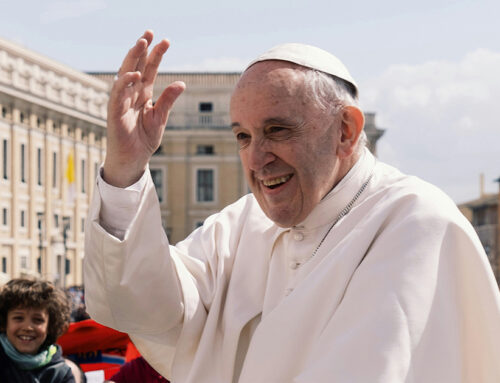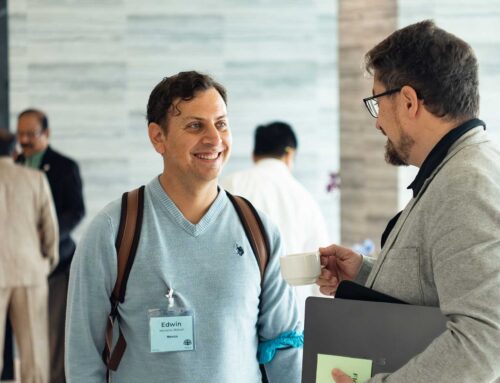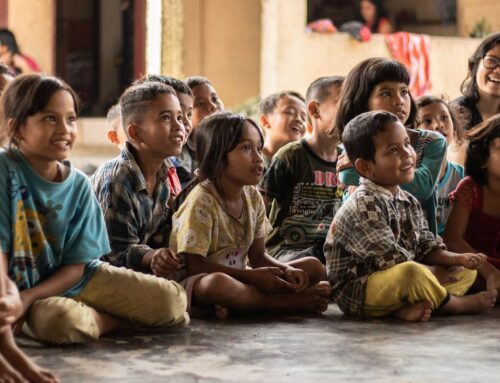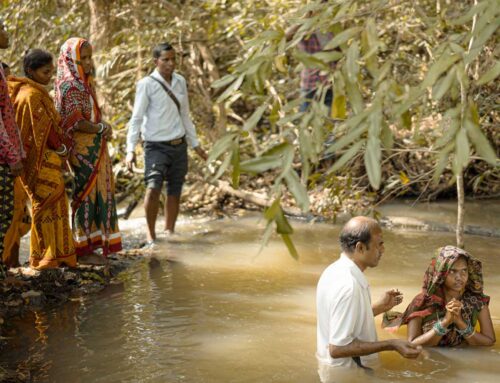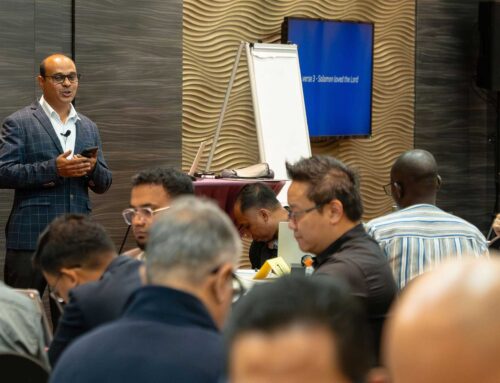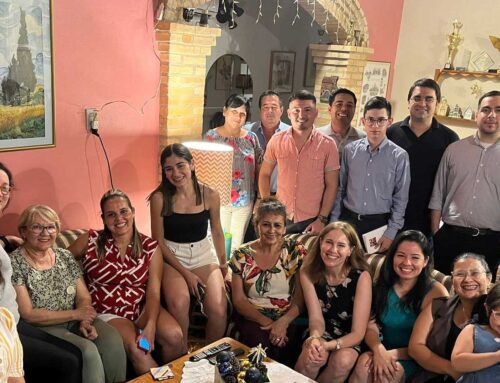Meeting Needs, Both Physical and Spiritual
Cambodia is largely a land of undulating plains and great rivers. Bordered by Thailand, Laos, Vietnam, and the Gulf of Thailand, it lies amid important overland and river trade routes linking China to India and other countries in Southeast Asia. Although the vast majority of Cambodia’s population is of ethnic Khmer origin, influences of Asian and Indian culture are notable even in the dominant religions of Buddhism and, to a lesser extent, Hinduism.
Listed as one of the poorest countries in the world, Cambodia relies on agriculture as the main source of employment. Whilst there is growth in the textile and tourism industry, with tourists intrigued by the massive temple complexes of Angkor Wat, the country is still recovering from the reign of the Khmer Rouge. Between 1975 and 1979, this rural communist guerilla movement accounted for the death of at least 1.5 million Cambodians.
Bua* is the pastor of a church in the capital city of Phnom Penh. Knowing the challenges of poverty her congregation faces, her vision is to empower and equip the local churches to raise the standard of living for people in their communities. She believes this can be done through education and the sharing of the Gospel. She says, “We are to live full lives, full in the fullness of God,” and believes that “with the relevant knowledge, skills, attitudes and behaviors we can work with God to uplift communities and make disciples.”
Bua is putting her vision into action as program manager for an organization that addresses both the physical and spiritual needs of the poor. There is training that focuses on how to start sustainable businesses, how to do organic farming with locally available materials, and even skills-based classes on parenting and conflict resolution to name a few.
There are critical barriers, however, that hinder the local and national churches from encouraging the development of their communities. One such barrier is the belief that they need to be poor, as Jesus was poor, assuming that spiritual needs are greater than physical needs. Bua teaches from Luke 2:52 that “Jesus grew in wisdom and stature, and in favor with God and man.” She emphasizes the transformational power of Jesus and the importance of pursuing physical, mental, emotional, and spiritual health for all people.
“God is a holistic and compassionate God who cares for all our needs,” says Bua, “and it is my mission to pass on the knowledge of this truth and bring upliftment and development to the people of Cambodia.”
*name changed to protect identity
Written by Carolyn Grant
Meeting Needs, Both Physical and Spiritual
Cambodia is largely a land of undulating plains and great rivers. Bordered by Thailand, Laos, Vietnam, and the Gulf of Thailand, it lies amid important overland and river trade routes linking China to India and other countries in Southeast Asia. Although the vast majority of Cambodia’s population is of ethnic Khmer origin, influences of Asian and Indian culture are notable even in the dominant religions of Buddhism and, to a lesser extent, Hinduism.
Listed as one of the poorest countries in the world, Cambodia relies on agriculture as the main source of employment. Whilst there is growth in the textile and tourism industry, with tourists intrigued by the massive temple complexes of Angkor Wat, the country is still recovering from the reign of the Khmer Rouge. Between 1975 and 1979, this rural communist guerilla movement accounted for the death of at least 1.5 million Cambodians.
Bua* is the pastor of a church in the capital city of Phnom Penh. Knowing the challenges of poverty her congregation faces, her vision is to empower and equip the local churches to raise the standard of living for people in their communities. She believes this can be done through education and the sharing of the Gospel. She says, “We are to live full lives, full in the fullness of God,” and believes that “with the relevant knowledge, skills, attitudes and behaviors we can work with God to uplift communities and make disciples.”
Bua is putting her vision into action as program manager for an organization that addresses both the physical and spiritual needs of the poor. There is training that focuses on how to start sustainable businesses, how to do organic farming with locally available materials, and even skills-based classes on parenting and conflict resolution to name a few.
There are critical barriers, however, that hinder the local and national churches from encouraging the development of their communities. One such barrier is the belief that they need to be poor, as Jesus was poor, assuming that spiritual needs are greater than physical needs. Bua teaches from Luke 2:52 that “Jesus grew in wisdom and stature, and in favor with God and man.” She emphasizes the transformational power of Jesus and the importance of pursuing physical, mental, emotional, and spiritual health for all people.
“God is a holistic and compassionate God who cares for all our needs,” says Bua, “and it is my mission to pass on the knowledge of this truth and bring upliftment and development to the people of Cambodia.”
*name changed to protect identity
Written by Carolyn Grant
Meeting Needs, Both Physical and Spiritual
Cambodia is largely a land of undulating plains and great rivers. Bordered by Thailand, Laos, Vietnam, and the Gulf of Thailand, it lies amid important overland and river trade routes linking China to India and other countries in Southeast Asia. Although the vast majority of Cambodia’s population is of ethnic Khmer origin, influences of Asian and Indian culture are notable even in the dominant religions of Buddhism and, to a lesser extent, Hinduism.
Listed as one of the poorest countries in the world, Cambodia relies on agriculture as the main source of employment. Whilst there is growth in the textile and tourism industry, with tourists intrigued by the massive temple complexes of Angkor Wat, the country is still recovering from the reign of the Khmer Rouge. Between 1975 and 1979, this rural communist guerilla movement accounted for the death of at least 1.5 million Cambodians.
Bua* is the pastor of a church in the capital city of Phnom Penh. Knowing the challenges of poverty her congregation faces, her vision is to empower and equip the local churches to raise the standard of living for people in their communities. She believes this can be done through education and the sharing of the Gospel. She says, “We are to live full lives, full in the fullness of God,” and believes that “with the relevant knowledge, skills, attitudes and behaviors we can work with God to uplift communities and make disciples.”
Bua is putting her vision into action as program manager for an organization that addresses both the physical and spiritual needs of the poor. There is training that focuses on how to start sustainable businesses, how to do organic farming with locally available materials, and even skills-based classes on parenting and conflict resolution to name a few.
There are critical barriers, however, that hinder the local and national churches from encouraging the development of their communities. One such barrier is the belief that they need to be poor, as Jesus was poor, assuming that spiritual needs are greater than physical needs. Bua teaches from Luke 2:52 that “Jesus grew in wisdom and stature, and in favor with God and man.” She emphasizes the transformational power of Jesus and the importance of pursuing physical, mental, emotional, and spiritual health for all people.
“God is a holistic and compassionate God who cares for all our needs,” says Bua, “and it is my mission to pass on the knowledge of this truth and bring upliftment and development to the people of Cambodia.”
*name changed to protect identity
Written by Carolyn Grant


